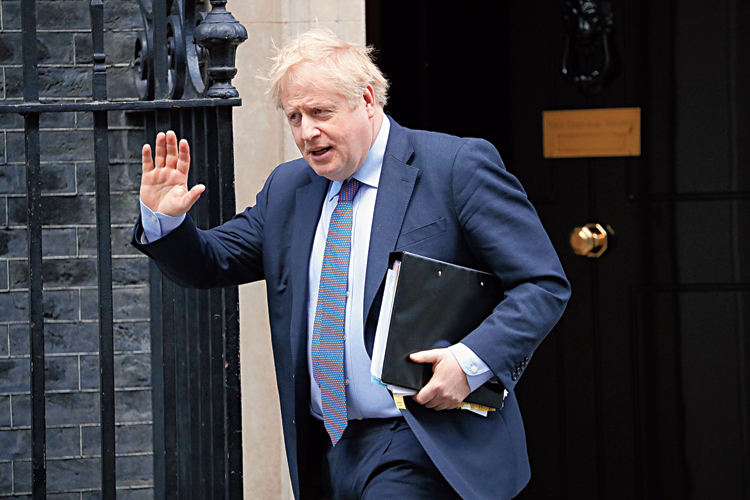Boris Johnson’s government has stepped in and saved the Ambedkar Museum in London from possible closure in the larger interests of UK-India relations.
The museum at 10, King Henry Road, on the borders of Primrose Hill and Hampstead in north London, was formally inaugurated by Narendra Modi on November 14, 2015, during his first visit to the UK as Prime Minister.
But the local authority, Camden Council, threatened to return the property to “residential use” after finding that the museum was “set up illegally without planning permission”.
The building has enormous emotional and political significance for Ambedkar’s followers because the architect of India’s Constitution was a student who had rented a room in the property from 1921-22 when he was enrolled at the London School of Economics.
A blue plaque on the front wall, erected by English Heritage, which is very choosy about where such marks of distinction are put up, emphasises the historic importance of the location.
It says simply: “Dr Bhimrao Ramji Ambedkar 1891-1956 Indian Crusader for Social Justice lived here 1921-22.”
In an address at the Palace of Westminster, Modi had said: “Ambedkar, whose 125th birth anniversary we are celebrating now, was not just an architect of India’s Constitution but our parliamentary democracy.
“He also stood for the upliftment of the weak, the oppressed and the excluded. And he lifted us all to a higher cause in the service of humanity; to build a future of justice, equality, opportunity and dignity for all humans; and peace among people.”
However, Camden Council ruled that the Indian High Commission had applied retrospectively for planning permission and sided with local residents such as Sue Price, who claimed visitors to the museum were arriving in “coach loads” to take photographs and generally disturbing the peace of the area.
The dispute went to appeal in August last year before an independent planning inspector, with no guarantee that the final ruling would be in favour of Ambedkar’s followers, who were traumatised at the prospect of having to close the museum. A sum of at least £2 million had been spent on renovating the property.
In September, under pressure from Delhi, the British government stepped in and took the matter out of the hands of the planning inspector.
“I have decided to recover the appeal for determination by central government,” was the explanation given by Robert Jenrick, secretary of state for housing, communities and local government.
Jenrick, who despite all the cabinet changes is still in the same job, gave the good news to Ambedkar’s followers on Friday.
“I was pleased to grant planning permission for a museum in London to Dr Ambedkar — one of the founding fathers of modern India and an important figure to many British-Indians,” he tweeted.
Once the dispute had been taken out of the hands of Camden Council, there was little doubt that the museum would be saved.











